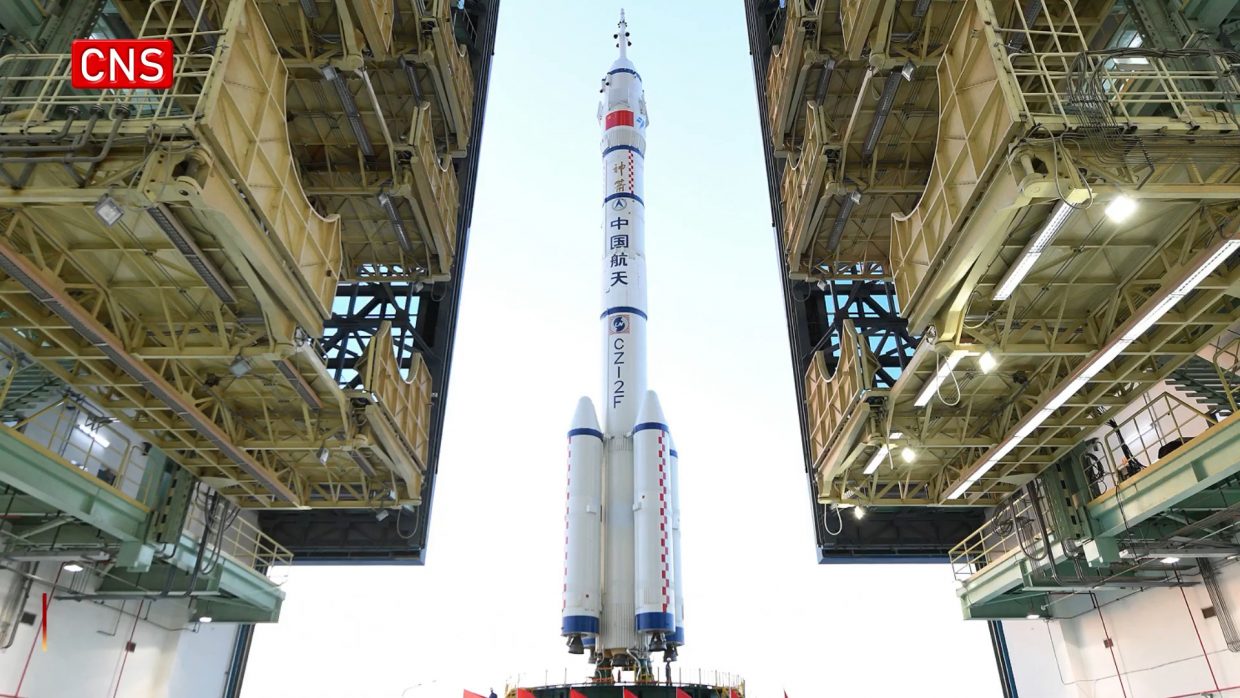Just weeks before a scheduled rocket launch, researchers from a Chinese space center claimed to have found a jammer capable of interfering with navigation systems.
The jammer was discovered in a car near the Jiuquan Satellite Launch Center in Gansu province nearly two weeks ago, Yangtze Evening News reported on Sunday.
The space center did not clarify if the discovery was a sabotage attempt or an accident. But it did state that the device could disrupt navigation systems and cause a rocket to deviate from its trajectory.
This is the first time China has documented an incident of this nature before a launch. The center is set to launch the Shenzhou 14 mission, which will carry a crew to the Tiangong space station on Sunday.
Beijing is going to send three astronauts into space. Liu Yang, China’s first woman to fly into space in 2012, is among the crew.
According to the article, the space center noticed unknown signal interference in early May. Scientists and engineers at the center spent many days analyzing and following the jamming signals, which went on and off frequently near the launch location.
Wang Lipeng, an electromagnetic signal technician, and his colleagues reportedly traced the signal and analyzed security video at the launch site to figure out what kind of jammer it was.
“We didn’t dare to move from the screen for one second. We were relieved when we finally identified the suspicious vehicle,” Wang said.
According to The South China Morning Post, the device was a tiny frequency transmitter with a standard maximum range of 32 feet. Such devices, according to the publication, can be purchased on e-commerce websites such as “Taobao.”
Taobao is China’s largest online shopping website and is owned by Alibaba. Alibaba is owned by one of China’s richest persons – Jack Ma, who has reportedly been involved in tumultuous relations with President Xi Jinping.

A scientist at the center told SCMP that despite its size, the gadget may be used to interrupt a satellite’s signal, which is already weak due to its altitude of more than 12,000 feet above the Earth.
These devices can be used for a wide range of purposes, like concealing the location of a device or hiding, modifying, or masking positioning signals from GPS units. Although GPS jammers are not prohibited in China, they are illegal to acquire, sell, or use in the United States and Canada.
China’s Space Station
The Shenzhou 14 is set to launch from the Gobi Desert at roughly 10.44 a.m. local time on Sunday, carrying three astronauts to the Tiangong space station for a six-month mission to observe the station’s final stages of construction.
The Shenzhou 14 spacecraft and its carrier rocket, the Long March 2F, have been relocated to the launch pad at the Jiuquan Satellite Launch Center in Inner Mongolia, where they will undergo final checks and testing week.
The three astronauts will stay aboard the station for six months and will supervise the construction of two more modules later this year —lab sections known as the Wentian and Mengtian labs.
According to Zhang Fusheng, chief designer for the manned spacecraft system, “in the coming days’ Chinese scientists will conduct a large-scale system interface test on the rocket system, and then proceed to a whole system drill, which marks the entry of the combo into the prelaunch status.”
The launch next month will be the one of six planned this year to complete Tiangong’s construction. When completed, the station will function as an orbiting research facility comparable to the larger International Space Station (ISS).
Tiangong will be operational for 10 to 15 years, during which time astronauts will conduct science experiments and communicate with the public about science. China is thought to be open to the idea of allowing international astronauts to live and operate aboard the space station.
“We believe that after our space station is completed in the near future, we will see Chinese and foreign astronauts flying and working together,” Ji Qiming, assistant director of the China Manned Space Agency, said at a news conference last year.
Earlier this month, Tianzhou 4 cargo spacecraft transported supplies for the six-month stay in the space station. China is barred from participating in the International Space Station because of human rights concerns and national security concerns. Congress has prohibited NASA, a major ISS collaborator, from interacting with China since 2011.
- Contact the author at ashishmichel@gmail.com
- Follow EurAsian Times on Google News